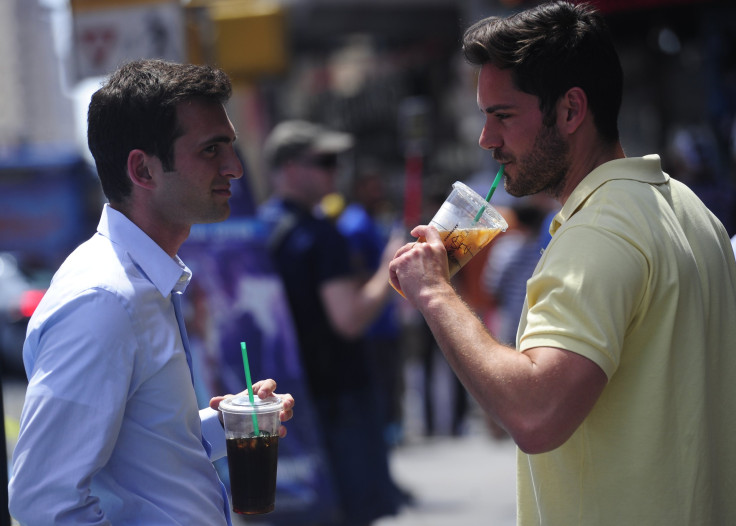Is Drinking Coffee While Driving Dangerous? New Jersey Bill Would Ban Caffeinated Car Rides

Everyone knows that you are not supposed to drink and drive. But most people wouldn't think that coffee was on the list of beverages banned while behind the wheel.
A new bill in New Jersey would make drinking coffee while driving illegal as part of a larger effort to curb distracted driving. The law would make the Garden State the third in the nation to ban caffeinated car rides and other banal actions. But following similar laws in Maine and Utah, it certainly would be the one with the harshest penalties.
The law, proposed by Democratic Assemblymen John Wisniewski and Nicholas Chiaravalloti, would fine drivers $200 to $400 for the first offense, $400 to $600 for a second offense and up to $800 and a 90-day license suspension for a third offense. That is one expensive latte! Comparatively, a first offense under Utah's 2014 law fined drivers $114, while drivers who violate Maine's 2009 law have to pay $119.
Drinking coffee is not the only practice banned under the proposed law. The bill would make illegal "any activity unrelated to the actual operation of a motor vehicle in a manner that interferes with the safe operation of the vehicle on a public road or highway." In fact, coffee is not explicitly mentioned in the bill, though it is making headlines because of the implications of the bill's strict language. It would remain to be seen how strictly the law would be enforced.
"Studies talk about how distracted driving is the number one cause of accidents," Wisniewski said, according to New Jersey.com. "We ought to be able stop it."
The bill is meant to curb accidents — the way that seatbelt laws across the country decades ago radically reduced the number of motor vehicle fatalities — and is modeled after similar laws in almost every state banning cell phone usage while driving. But the Insurance Institute for Highway Safety says there is little evidence the strict ban would be effective.
"We would not make that leap," said spokesman Russ Rader. "With education and vigorous enforcement of safety belt laws, we saw immediate effects with fewer deaths. We're not seeing the same kind of immediate safety benefits with education and enforcement of cell phone laws."
© Copyright IBTimes 2025. All rights reserved.






















